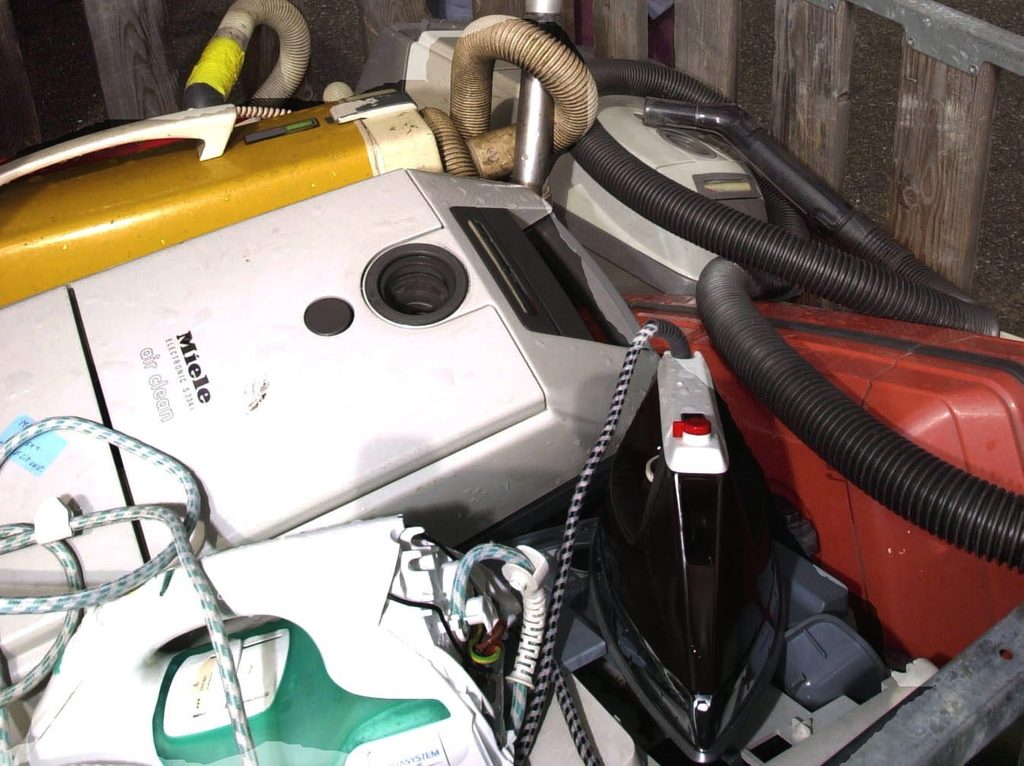Electro Sofie, located in the Liège region, has emerged as a pioneering force in the second-hand large appliances market, offering refurbished items at affordable rates through their resource centres. This initiative is supported by Recupel, an organisation increasingly prioritizing reuse.
Around 119,654 tonnes of used electrical appliances and light bulbs were collected by Recupel in 2022, an organisation funded by contributions from Belgium's electronics producers and importers.
Recupel's mission extends beyond collecting items at waste centres and shops; they collaborate with manufacturers, distributors, chartists, and resource centres like RShop Country in Grâce-Hollogne, owned by Electro SOFIE. In 2022, this collaboration reintroduced 3,818 tonnes of devices into the Belgian market, a significant increase from the previous year.
However, this figure represents only 3% of all collected devices in Belgium, as not all used equipment reaches collection points or the Recupel reuse circuit. Some manufacturers resell their used products directly, while others are sold to scrap dealers for a modest sum. To encourage and support reuse efforts, compensation is offered based on the volume of items put into reuse.
The partnership between Recupel and Electro SOFIE serves as a prime example of success. Electro SOFIE, based in Liège, collaborates with around fifty recycling parks and recovers up to 6,000 tonnes of equipment annually, a quantity comparable to direct collection contributions. This extensive feed helps them select devices that are easily repairable and resalable based on criteria such as overall condition, price, age, and brand.
Ensuring circularity
Alongside the store, a bustling workshop sees around 3,500 large appliances pass through the hands of technicians each year. Each device undergoes a thorough cleaning and examination, even testing various washing cycles to offer a one-year warranty. Technicians use parts salvaged from discarded devices for repairs, economizing and reducing waste.
Acquiring second-hand products not only provides affordability but also promotes a circular economy and sustainability. Repairing machines reduces the demand for raw materials and the energy required to manufacture new appliances. Beyond environmental concerns, Electro SOFIE focuses on social and economic aspects, reinvesting all profits to create sustainable employment opportunities for individuals facing job market challenges.
The personnel at their shop and workshop come from diverse backgrounds, including a salesperson with an art history background and a technician trained in the USSR who worked on Soviet submarines. Electro SOFIE provides training to equip these individuals with the necessary skills. They also maintain price caps to accommodate clients with budget constraints.
While Electro SOFIE's success is commendable, there are obstacles which are hindering its development. Collaboration on a national scale is necessary to ensure that repairable machines find their way into the repair and reuse circuits.
Workshop capacities need to expand to handle larger volumes, but recruiting qualified staff, interns, and individuals seeking job market integration with the necessary skills and motivation remains a challenge. This shortage extends to distributors seeking repair and after-sales service staff.
Efforts to build partnerships with all Recupel members must intensify to access not only machines but also vital information and diagnostic programs for repairs. An overhaul of the financial model for producers, focusing on longer device lifespans, is essential for a sustainable transition.
To achieve true sustainability, the current status quo must evolve beyond short-lived products, ushering in a new era of responsibility and longevity.

